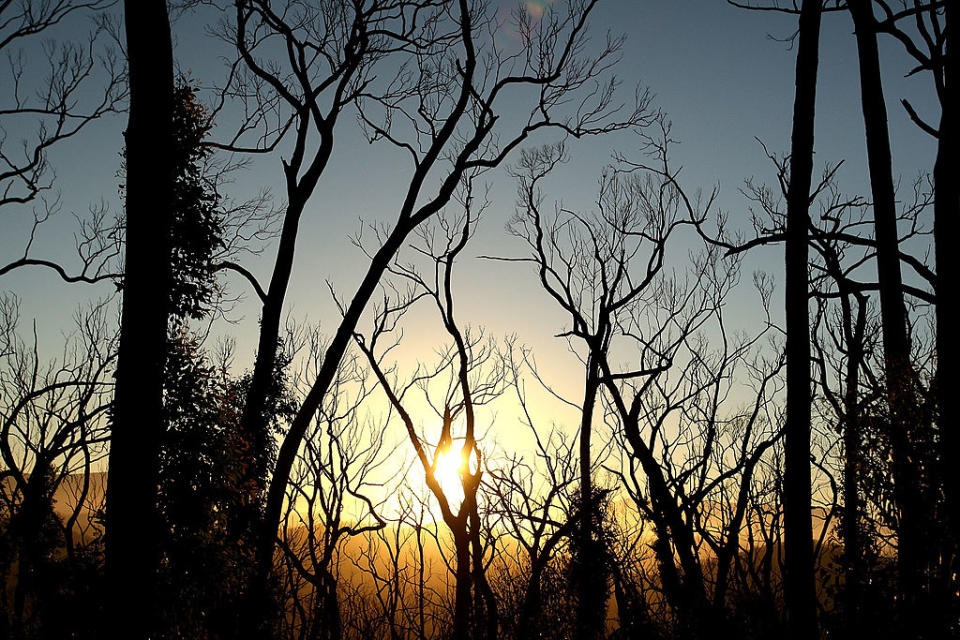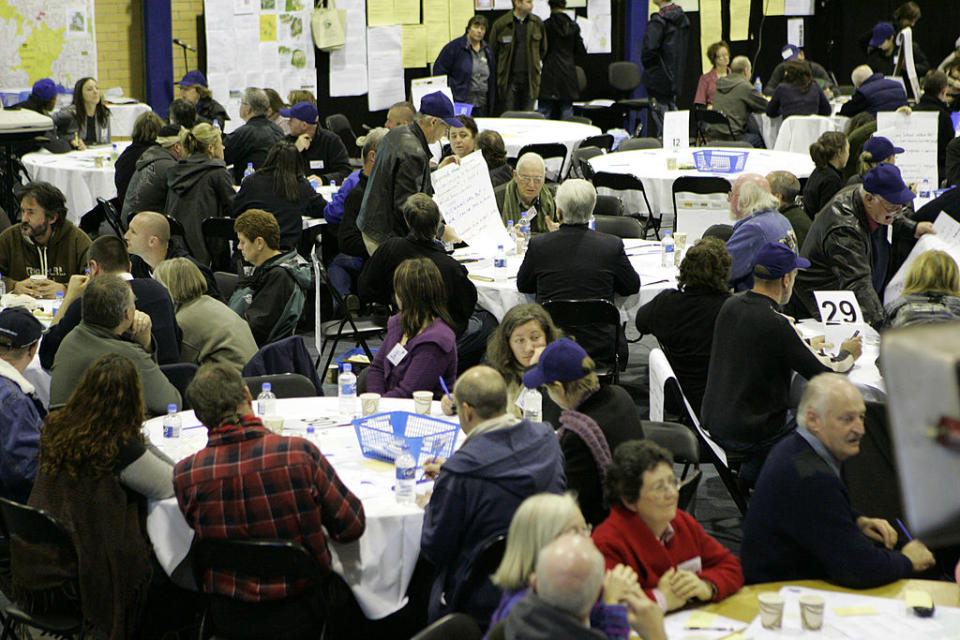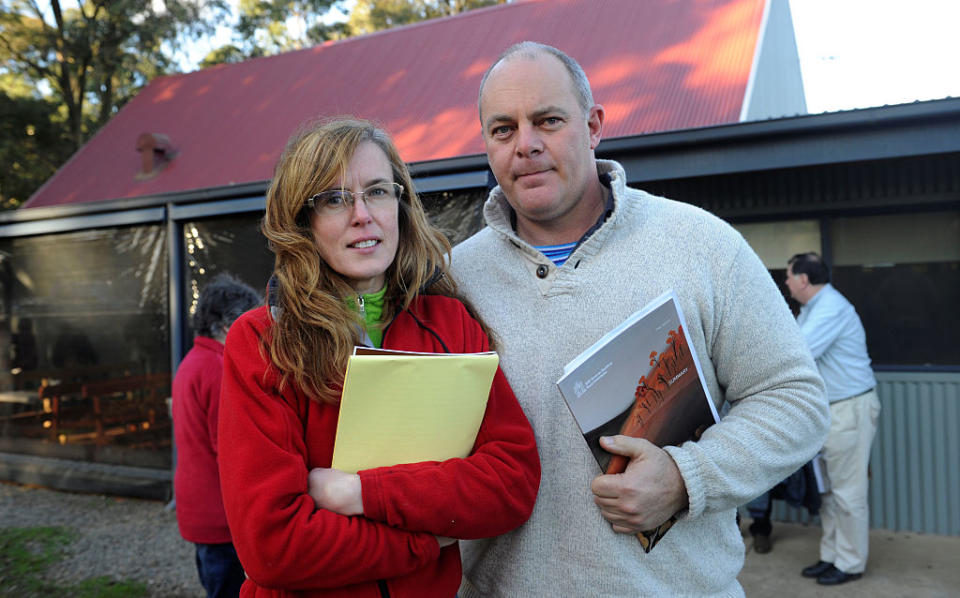Lessons from Black Saturday: What happens now?

The Black Saturday bushfires in 2009 claimed 173 lives and over 2,100 homes and, a decade on, Australia is in a similar position.
The human death toll of the 2019-20 bushfires is currently 24, while the wildlife death toll is almost 1 billion.
Over 464 homes have been destroyed this year alone, with the total number of properties caught in the blaze at 2,500 since the beginning of the bushfire season. Almost 5 million hectares of land has been burnt.
On January 5, Prime Minister Scott Morrison appointed former federal police commissioner Andrew Colvin to oversee reconstruction and recovery efforts for an initial two-year period, meaning communities will be rebuilding for at least that period of time.
Also read: Centrelink’s callous message to bushfire victims with welfare cards
Also read: Can't donate cash? Here's how you can still help bushfire victims
Also read: How to donate to wildlife injured by the Australian bushfires
“It’s a long road ahead and we will be with these communities every step of the way as they rebuild,” the prime minister said.
“While the immediate focus for our emergency services and the Australian Defence Force is keeping people safe and defending against the fires hitting so many areas, we also need to be ready to hit the ground in communities where the fire-front has passed to help them rebuild.
“The [National Bushfire Recovery] Agency will ensure the work of state and territory governments is being supported and act as a ‘one stop shop’ central team to coordinate the response. We will do whatever it takes.”
On top of that, donations have exceeded $100 million, with celebrities, everyday Aussies and corporations pitching in to major charities and organisations to show their support.
But resident of Kinglake, the epicentre of the 2009 Black Saturday fires, and founding member and President of the Kinglake Ranges Business Network, Brad Quilliam, says we haven’t learnt our lesson.
‘It’s Black Saturday all over again’
Quilliam, who lost friends, community members and his home in the Black Saturday fires, told Yahoo Finance that donations to larger charities don’t necessarily help the communities affected.
“A lot of people are giving in goodwill, thinking that the money is going towards supporting communities,” Quilliam said.
“When money is gifted to RFS or CFA, people are thinking that money is going to go to volunteers - it’s not.
“Red Cross money has restrictions, it was set up over 100 years ago, and farmers, schools, sporting clubs, churches - they can’t receive funds through the Red Cross,” he said.
This is the issue Quilliam remembers finding a decade ago in the aftermath of Black Saturday.
“They’ll find the money situation is Black Saturday all over again. The money doesn’t go where you think it’s going to go to help.”
But it’s a catch 22, because your material donations to community members aren’t helpful either, Quilliam said.

“When people are sent these free items, that means businesses then close down,” he said.
If you want to directly help a community, Quiliam said you can donate to Rotary clubs or the Country Womens’ Association: “Working with those that are in the communities, like the clubs, is a smarter approach.”
‘They need to be able to start the conversation’
Quilliam remembers hosting 20 events in 12 months in Kinglake in a bid to raise morale.
“The people in those communities need to be able to come together to be able to sit and start the conversation,” he said.
Quilliam, who also sat on the government’s men’s mental health committee, found that male farmers experienced mental health issues in the aftermath of the fires.
“The women do it very well, but the men need to be able to open up and talk. There’s a lot of guilt that they feel, particularly the CFA volunteers and the farmers.”

‘It’s all about timing’
Quilliam acknowledged that a huge part of rebuilding communities is pumping money back into them, which is where rural tourism comes into play.
Spend money in towns, stay at their accommodation and interact with communities, but bear in mind, survivors need time.
“It’s like if you had a death in the family. You’re suffering grief, you’re traumatised, and all of a sudden you have strangers coming into your home,” Quilliam explained.
“Sometimes that’s not what you need.”
Quilliam recalled visitors asking his children whether they lost their home or friends in the early stages of recovery.
“It’s a timing thing,” he said. “You want the support, but give it time.”
‘Meet peoples’ needs’
When it comes to recovering from a disaster, it’s not a one-size-fits-all approach, Monash University’s Accident Research Centre fellow Dr Caroline Spencer told Yahoo Finance.
“What’s good for one may not always be good for the other,” Spencer said.
“Some of the survivors of Black Saturday write on social media about the things that you can and can't do.
“The most important thing at the moment is just listening to people and listening to what their needs are,” she said.
“This means sending money, rather than objects to particular bushfire affected areas, or vice-versa.”
“You only have to look at East Gippsland, where people have been inundated with material donations, when in actual fact, what they need is cash so they can choose what to do with it,” Spencer said.
But it takes time to build a resilient community: while the soil rebounded quickly, taking just three weeks to sprout flora, the regional Victorian town of Marysville took between two and three years to begin rebuilding, residents of Marysville said.
In Strathewen, another town ravaged by the Black Saturday fires, 29 people and 80 per cent of homes were lost on Black Saturday, but it was community spirit that brought it back to life, a bushfire safety educator told The Weekly Times on the 10th anniversary of the fires.
From Spencer’s perspective, having that community network in place before a disaster takes place is even better.
“[It means] you know who the leaders are, you know who the key people are, you know what your plans are, and you can connect very quickly,” she said.
And being emotionally prepared for a disaster is important too.
“Before an event is actually when you should put your head in that space and think, well, ‘if everything goes down, how am I going to cope with that?’”
Make your money work with Yahoo Finance’s daily newsletter. Sign up here and stay on top of the latest money, news and tech news.

 Yahoo Finance
Yahoo Finance 